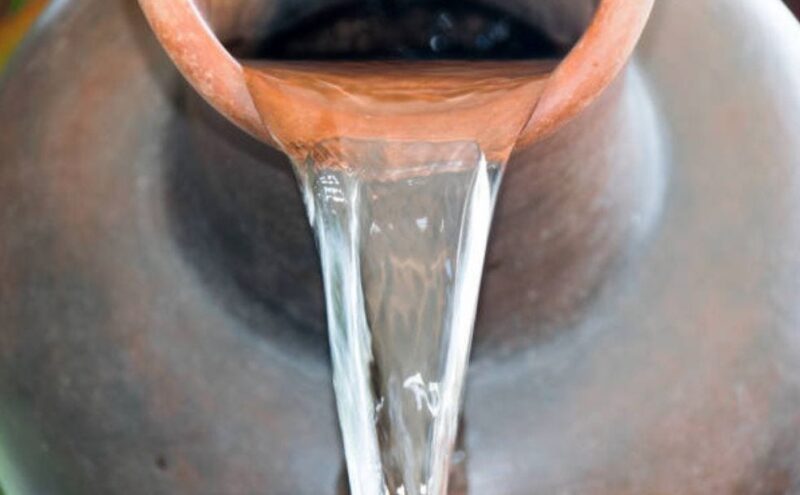Many households rely on a traditional method for cooling water. Using evaporative cooling, earthen pots provide an efficient and eco-friendly alternative to modern refrigeration. This age-old technique keeps water at an ideal drinking temperature without electricity.
The pots also offer health benefits, maintaining water’s mineral balance and preventing throat irritation. As demand for natural solutions grows, earthen pots remain a superior choice for keeping water cool.
Evaporative Cooling Process
Earthen pots cool water through a natural process called evaporative cooling. The walls of these pots have tiny pores that allow water to seep through and evaporate from the surface. This evaporation process absorbs heat from the water inside, lowering its temperature. This method is highly effective in hot climates and requires no electricity.
How It Works
The evaporation process involves water changing from liquid to gas, absorbing energy in the form of heat from the surrounding water inside the pot. The porous nature of the clay facilitates this evaporation, making it a simple yet efficient cooling method.

Advantages
- Energy Efficiency: No electricity is needed, making it cost-effective and environmentally friendly.
- Consistent Temperature: The water is cooled to a comfortable drinking temperature, avoiding the harsh coldness of refrigerated water.
- Simplicity and Reliability: This method has been proven effective over centuries and requires no maintenance.
Health Benefits of Alkaline Water
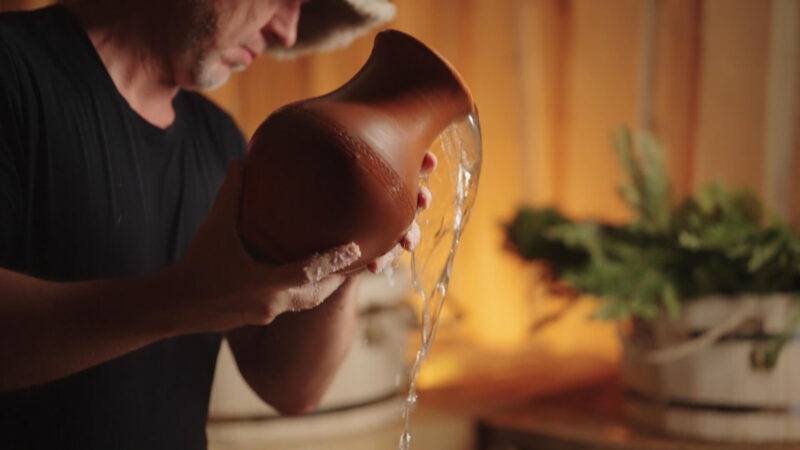
Water stored in earthen pots becomes alkaline, which offers several health benefits. The clay used in these pots has alkaline properties that balance the pH levels in the water, promoting better health.
Benefits
- Improved Digestion: Alkaline water helps break down food more effectively, enhancing nutrient absorption.
- Balanced pH Levels: It neutralizes body acidity, preventing conditions like acid reflux and heartburn.
- Enhanced Metabolism: Drinking alkaline water can boost metabolism, aiding in weight management and overall energy levels.
Why Alkaline Water is Important
Alkaline water helps maintain the body’s pH balance, preventing acidity-related issues and improving overall health. This natural method avoids artificial additives, providing a healthier drinking option.

Preservation of Minerals
Earthen pots are made from natural clay, which contains various minerals. When water is stored in these pots, it absorbs some of these beneficial minerals, enhancing its nutritional value.
How Mineralization Occurs
The porous nature of clay allows water to interact with the minerals present in the pot. Over time, trace amounts of these minerals dissolve into the water, enriching it with essential nutrients.
Benefits
- Nutrient-Rich Water: Minerals such as calcium, magnesium, and iron enrich the water.
- Better Hydration: Mineralized water improves hydration by enhancing the body’s ability to absorb and retain water.
- Improved Taste: The presence of natural minerals can improve the taste of the water, making it more palatable compared to plain filtered or tap water.
Environmental Advantages
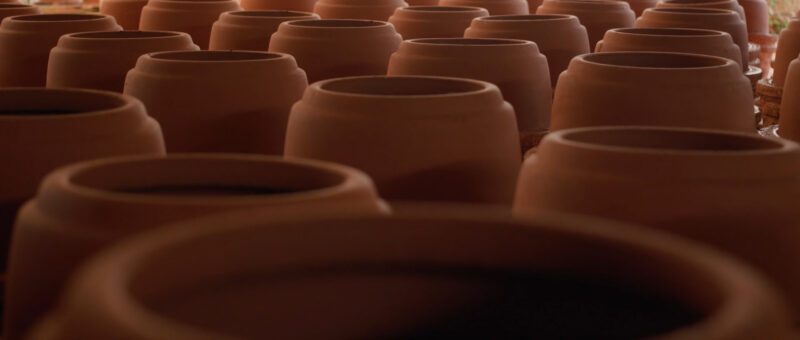
Earthen pots are an environmentally friendly alternative to modern cooling methods. Made from natural clay, these pots do not require any electricity to function, making them a sustainable choice for cooling water.
Environmental Benefits
- Reduced Energy Consumption: By eliminating the need for electricity, earthen pots reduce energy consumption and lower the household carbon footprint.
- Biodegradable: Unlike plastic containers, earthen pots are biodegradable and do not contribute to landfill waste. They can be easily decomposed or reused in various ways.
- Sustainable Production: The production of earthen pots involves minimal processing and is often done using traditional methods that have a low environmental impact. Local artisans craft these pots using locally sourced materials, further reducing the environmental footprint.
Supporting Local Economies
Purchasing earthen pots supports local economies and traditional craftsmanship. Many communities rely on pottery as a source of livelihood, and choosing these products helps sustain these cultural practices.
Additional Insights
In an era where sustainability is becoming increasingly important, earthen pots offer a simple yet effective way to reduce environmental impact. They provide a practical solution for cooling water that aligns with eco-friendly living principles.
Economic Benefits
Earthen pots offer significant economic benefits due to their low cost and durability. They are an affordable alternative to modern cooling appliances and have a long lifespan with minimal maintenance requirements.
Cost-Effectiveness
- Low Initial Cost: Earthen pots are inexpensive to purchase compared to refrigerators or electric water coolers.
- No Operational Costs: Since they do not require electricity, there are no ongoing operational costs associated with their use.
- Durability: With proper care, earthen pots can last for many years, making them a cost-effective long-term solution for cooling water.
Maintenance and Replacement
Maintaining earthen pots is simple and does not require specialized skills or tools. Cleaning them regularly with water and a brush is usually sufficient. In case of damage, they can be easily replaced at a low cost, ensuring continuous use without significant financial burden.
Additional Insights
The economic benefits of using earthen pots extend beyond the initial purchase. By eliminating the need for electricity and reducing maintenance costs, these pots provide a financially sustainable option for households looking to cool water naturally.
Traditional and Modern Relevance

Earthen pots have been used for centuries across various cultures for their cooling properties. Despite the advent of modern refrigeration, they continue to hold relevance today due to their effectiveness and health benefits.
Historical Significance
Earthen pots date back to ancient civilizations such as the Indus Valley and Harappan cultures. They were widely used for storing and cooling water, taking advantage of the natural properties of clay. This method has stood the test of time and remains popular in many regions, particularly in rural areas.
Modern Adaptations
In contemporary times, earthen pots are gaining renewed interest as people seek sustainable and eco-friendly alternatives to modern appliances. They are used not only for cooling water but also in innovative applications such as natural air conditioning and insulation in buildings.
Cultural Continuity
The use of earthen pots reflects a continuity of cultural practices and traditional knowledge. By integrating these pots into modern lifestyles, there is a preservation of heritage and a recognition of the wisdom of ancient methods.
Additional Insights
The continued relevance of earthen pots highlights their adaptability and enduring value. They serve as a bridge between traditional practices and modern sustainability goals, offering practical solutions that honor cultural heritage.
Ideal Drinking Temperature
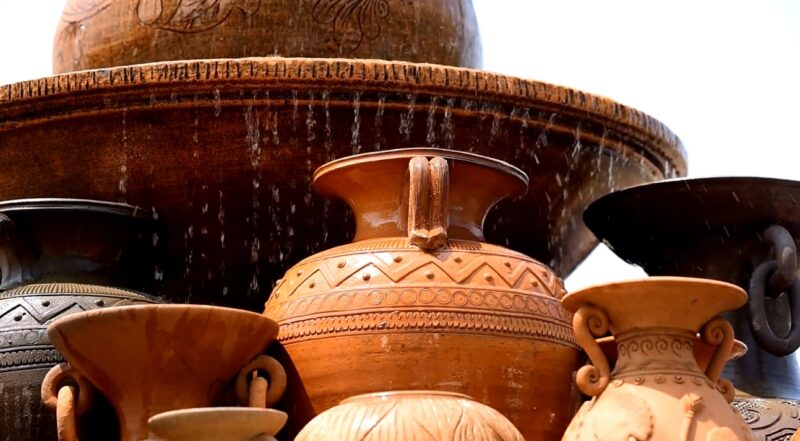
Water stored in earthen pots is naturally cooled to an ideal drinking temperature. This makes it more pleasant to drink compared to refrigerated water, which can sometimes be too cold and harsh on the throat.
Optimal Cooling
The evaporative cooling process in earthen pots maintains water at a temperature that is cool enough to be refreshing but not so cold as to cause discomfort. This temperature is typically around 15-20 degrees Celsius, depending on the ambient conditions.
Health Considerations
Drinking excessively cold water can lead to throat irritation and other respiratory issues. The moderate cooling provided by earthen pots avoids these problems, making the water safer and more comfortable to consume, especially for those with sensitive throats.
Additional Insights
Maintaining water at an ideal drinking temperature is one of the key advantages of using earthen pots. It ensures that the water is always at a comfortable temperature, enhancing the overall drinking experience and promoting better hydration habits.
Eco-Friendly Alternative to Refrigeration
Earthen pots offer an eco-friendly alternative to modern refrigeration methods. They do not require electricity, making them a sustainable choice for cooling water.
Environmental Impact
- Energy Savings: By eliminating the need for electricity, earthen pots reduce energy consumption and lower the household carbon footprint.
- Natural Materials: Made from clay, these pots are biodegradable and do not contribute to landfill waste. They can be easily decomposed or reused in various ways.
- Sustainable Production: The production of earthen pots involves minimal processing and is often done using traditional methods that have a low environmental impact. Local artisans craft these pots using locally sourced materials, further reducing the environmental footprint.
Sustainable Solution for Cooling Water (Continued)
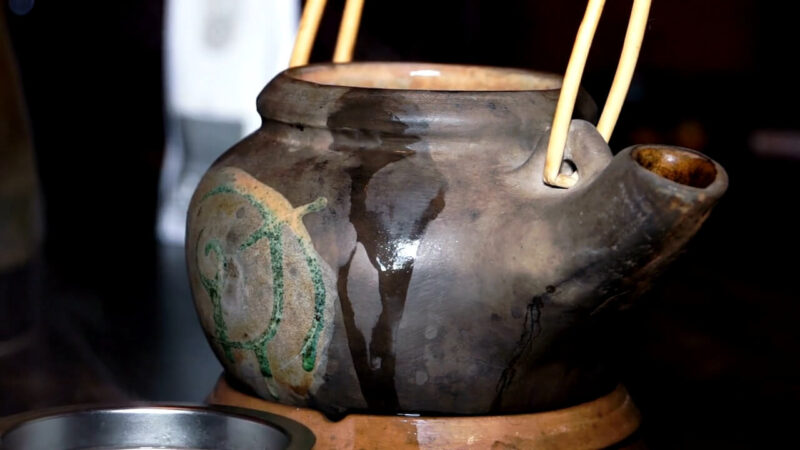
Earthen pots are a sustainable solution for cooling water. Their use aligns with eco-friendly practices and supports local craftsmanship, making them an excellent choice for environmentally conscious consumers.
Benefits
- Energy Conservation: Earthen pots do not require electricity, reducing energy consumption and lowering carbon footprints.
- Support for Local Artisans: Purchasing these pots supports traditional pottery-making communities, promoting economic sustainability.
- Natural Materials: Made from biodegradable clay, they are environmentally friendly and can be recycled or composted at the end of their life cycle.
Why Choose Earthen Pots
Opting for earthen pots over modern refrigeration methods is a step towards sustainable living. They offer an effective way to keep water cool while minimizing environmental impact and supporting traditional craftsmanship.
Additional Insights
The use of earthen pots represents a harmonious blend of tradition and sustainability. They provide a practical, eco-friendly solution for cooling water that respects the environment and supports cultural heritage. This approach not only benefits individual health and household budgets but also contributes to broader ecological and economic stability.
Conclusion
Earthen pots provide a natural and effective way to cool water, combining the benefits of evaporative cooling, the health advantages of alkaline water, and the preservation of essential minerals.
Their use supports environmental sustainability by reducing energy consumption and offering a biodegradable alternative to plastic and other modern cooling methods. Economically, they are a cost-effective solution with minimal maintenance requirements, making them accessible and practical for many households.

